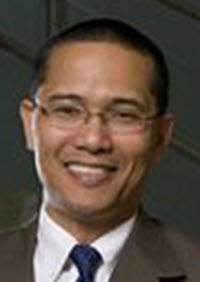Abstract
Excerpted From: Victor C. Romero, Interracial Coalition Building: A Filipino Lawyer in a Black-White Community, 127 Dickinson Law Review 767 (Spring, 2023) (44 Footnotes) (Full Document)
 As a relatively junior U.S. law professor from the Philippines teaching in predominantly white south-central Pennsylvania in the early 2000s, I remember when the Ku Klux Klan (KKK) came to town to rally and recruit new members. Having lived most recently with my Caucasian wife in cosmopolitan Los Angeles, I had assumed (perhaps naïvely) that a northeastern city that housed a liberal arts college, a university law school, and the United States' naval war college would be immune from such extremist incursions. While Carlisle, Pennsylvania was never a completely comfortable place to live for an interracial couple like my wife and me, we still felt relatively safe. So, the Klan's fall 2000 recruiting visit was an opportunity to see how I might help counter this negative presence by volunteering in our community. My goal was to use my background in law to help support initiatives that would foster unity in Carlisle, joining civic organizations committed to that purpose.
As a relatively junior U.S. law professor from the Philippines teaching in predominantly white south-central Pennsylvania in the early 2000s, I remember when the Ku Klux Klan (KKK) came to town to rally and recruit new members. Having lived most recently with my Caucasian wife in cosmopolitan Los Angeles, I had assumed (perhaps naïvely) that a northeastern city that housed a liberal arts college, a university law school, and the United States' naval war college would be immune from such extremist incursions. While Carlisle, Pennsylvania was never a completely comfortable place to live for an interracial couple like my wife and me, we still felt relatively safe. So, the Klan's fall 2000 recruiting visit was an opportunity to see how I might help counter this negative presence by volunteering in our community. My goal was to use my background in law to help support initiatives that would foster unity in Carlisle, joining civic organizations committed to that purpose.
In this Essay, I explore that volunteer experience through the lens of Eric Yamamoto's four-part prescription for advancing interracial justice. Following this analysis, I derive three lessons I learned from my volunteering experience as an outsider to both the historically Black organization I was serving and the larger white community I was helping: It is important to answer the call to serve, even when in doubt; leadership can best be achieved by serving and listening to others; and it is imperative to respect the coalition of community members and to patiently trust the process rather than worry about the outcome.
[. . .]
Many believe that Americans live in an irreparably divided nation. The sad reality is that we've long been divided by race both in law and in fact, a legacy of African slavery and the long shadow of Jim Crow. My volunteer experience in Carlisle reflected that reality. While I am thankful for the opportunity to have led the Carlisle NAACP and participated in the McGowan episode, an important chapter in the town's educational history, I harbor no illusions that working for a more just society in the United States is approaching a satisfactory end. What I do believe, then and now, is that it is important to serve others when we can, despite our misgivings, despite our doubts. By serving first and listening to others, we can build interracial relationships that work. By investing in the coalition, we can patiently navigate hurdles, trusting the process. It is through this incremental, bridge-building volunteer work that barriers are overcome, and progress is made. By voluntarily sharing our talents acquired through training and experience, we can play an active role in helping make the United States “a more perfect Union.”
Maureen B. Cavanaugh Distinguished Faculty Scholar & Professor of Law, Penn State Law-University Park.


